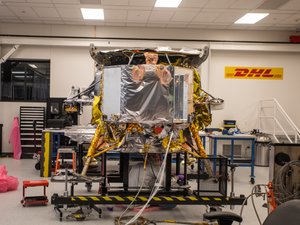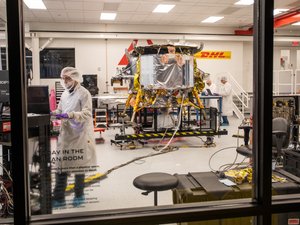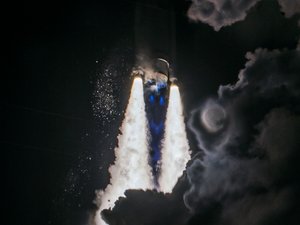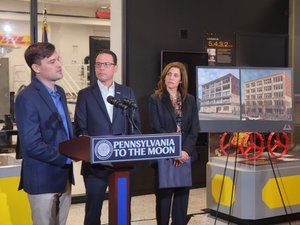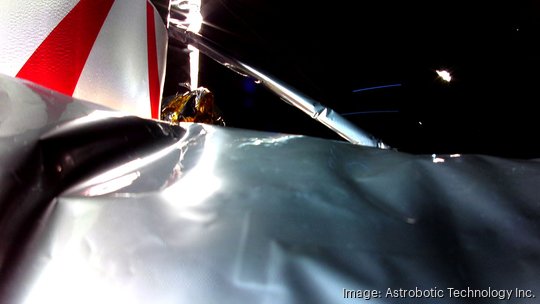
After disclosing its original mission to the lunar surface won't be completed as planned amid propulsion anomalies, Astrobotic Technology reported a positive development regarding its onboard payloads.
The Pittsburgh-based company said that all 10 of its payloads onboard its Peregrine Lunar Lander that require electrical power have been successfully supplied with it. Additionally, nine of these payloads can communicate with the lander. Its 10 other payloads, for a total of 20 onboard, are passive machines or instruments that don't require power.
"These payloads have now been able to prove operational capability in space and payload teams are analyzing the impact of this development now," Alivia Chapla, director of marketing and communications for Astrobotic, said in a statement. "We are proud of the mission team for achieving this incredible feat under such challenging circumstances."
One of these now-powered payloads is the Iris Lunar Rover, the smallest and lightest rover to make it to space after being made by students at Carnegie Mellon University, the only university that got to feature payloads onboard Peregrine.
It remains unclear as to what the final fate of these payloads will be after Astrobotic announced on Jan. 9 that the maiden mission of its Peregrine Lunar Lander had come to a premature end following a propellant leak onboard Peregrine's propulsion system. Engineers of the company first identified the leak late Monday morning. Crews, working around the clock out of Astrobotic's mission control center and headquarters on the North Side, have tried to remedy the issue, but the original plans to have the lander make a "soft landing" on the moon have been scrapped given that this system is critical to ensure a gentle touchdown on the lunar surface.
It marked a major setback for the local tech and aerospace firm, which was racing to be the first private company to put a spacecraft on the lunar surface as part of NASA's Commercial Lunar Payload Services (CLPS) program. Astrobotic, which employs about 200 people, received a $108 million contract to do so and received a $199 million contract from NASA for its forthcoming Griffin lander, which is four times the size of Peregrine and could set out for its lunar landing attempt later this year.
